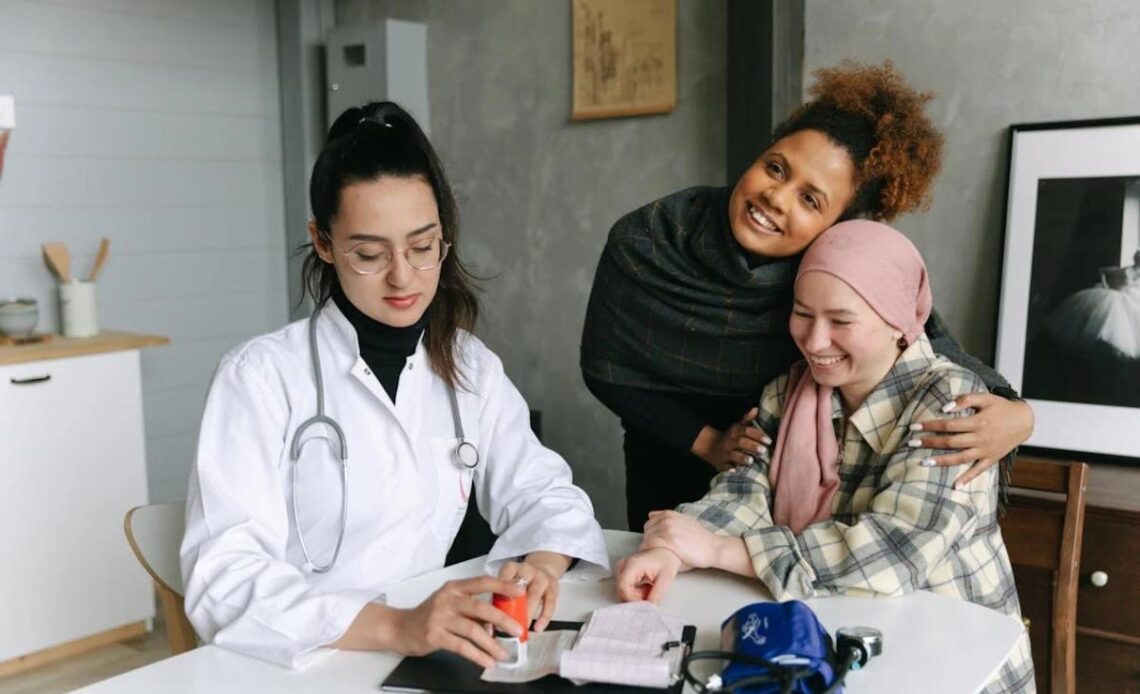
Cancer therapy frequently results in significant physical and mental fatigue for patients. Sustaining both energy and a constructive mental perspective is vital but difficult throughout the recuperation phase. Thorough care extends past mere symptom control to encompass all aspects of a patient’s well-being. A comprehensive strategy greatly influences both the quality of life and the effectiveness of treatment for the patient. With proper support, individuals undergoing cancer treatment can regain their vigor and positive outlook, beginning with the attentive care provided by their medical team.
Pexel
The Role of Specialized Education in Patient Care
Healthcare professionals who engage in specialty care are uniquely positioned to tackle the challenges that arise in treating cancer patients. Specialized training provides them with the critical knowledge needed to administer complex treatments effectively. Among such treatments, radiation therapy stands out as a crucial component in combating cancer, given its precision and the complexity involved in its application. To administer this type of therapy with expertise, doctors must first obtain accreditation.
For individuals seeking to enter this field as radiation therapists, obtaining a radiation therapy certificate through an accredited program is essential. These programs equip professionals with the skills to deliver precise treatments, manage complex equipment and stay updated on advancements in radiation therapy. Specialized training not only enhances proficiency but also ensures quality care and improved outcomes for patients.
This professional skill and knowledge is critical for delivering top-tier care. It guarantees that patients have access to the most effective treatments, crucial for elevating treatment results and improving the quality of life during and post-cancer therapy. Moreover, this expertise deepens medical professionals’ understanding, subsequently boosting patient trust and commitment to treatment plans, which plays a significant role in their recovery trajectory.
Nutritional Strategies to Boost Energy
Effective nutrition plays a pivotal role in cancer recovery, significantly influencing a patient’s energy levels. Physicians must guide their patients in addressing diet-induced fatigue, a frequent challenge during and after cancer treatment. Rectifying specific nutritional deficiencies, such as low levels of iron or vitamin D, can greatly enhance energy levels. In addition to these, regulated doses of vitamin B12 are crucial, particularly because it supports nerve health and red blood cell production, which are often compromised during cancer therapies. Healthcare professionals must design personalized nutrition plans that meet the unique dietary needs of each patient, ensuring the adequate intake of essential nutrients to support both their energy and overall health.
Physical Rehabilitation and Exercise Programs
Physical activity plays a critical role in helping patients rebuild strength and endurance after cancer treatment. Each plan must be carefully adjusted to meet the patient’s specific physical abilities and limitations. Experienced physical therapists and exercise physiologists design targeted programs that support steady and sustainable improvements in strength and overall function.
This method prevents patients from overtaxing themselves, which would be detrimental. By facilitating a gradual increase in physical activity, healthcare professionals aid patients in enhancing their energy levels safely.
Psychological Support and Mental Health Care
Mental wellness is as vital as physical care during the stages of cancer recovery. A patient’s emotional health deeply affects their vigor and their active participation in treatment and healing activities. Mark Behavioral Health emphasizes the importance of integrating cognitive-behavioral techniques and mindfulness routines into clinical guidelines. These strategies help mitigate stress, anxiety, and depression associated with cancer diagnoses while creating an optimistic mindset throughout treatment.
Integrative Medicine Approaches
Integrative medicine enhances conventional cancer treatments by including supportive therapies like acupuncture, massage therapy, and meditation, which improve patient outcomes. These techniques are valuable for alleviating symptoms and enhancing emotional wellness.
Physicians should integrate these methods into their treatment plans, as their ability to manage symptoms and promote better overall health has consistently been proven. Supporting the use of integrative medicine with evidence from research and case studies can further validate these approaches and encourage their adoption in standard cancer care practices.
Harnessing Social and Community Support
The involvement of friends, family, and the wider community is crucial for the recovery of individuals battling cancer. This form of social support profoundly affects the patient’s mood and energy levels. Healthcare providers must proactively connect their patients with local support groups and other community resources, enabling them to exchange experiences and receive emotional support.
Furthermore, training families on how to deliver both practical and emotional support at home strengthens both the patients and their caregivers, fostering an environment that promotes healing.

Conclusion
The recovery of energy and fostering a positive mental outlook are vital components of overcoming cancer. Healthcare professionals are central to this recovery, utilizing a comprehensive approach that encompasses both the physical and mental dimensions of patient care. By implementing specialized educational programs, dietary recommendations, customized exercise plans, mental health assistance, integrative treatments, and community support, medical practitioners provide thorough care that actively aids patients in restoring their health. Each action taken towards such comprehensive care helps to equip patients not just to survive cancer but to flourish following their treatment.
